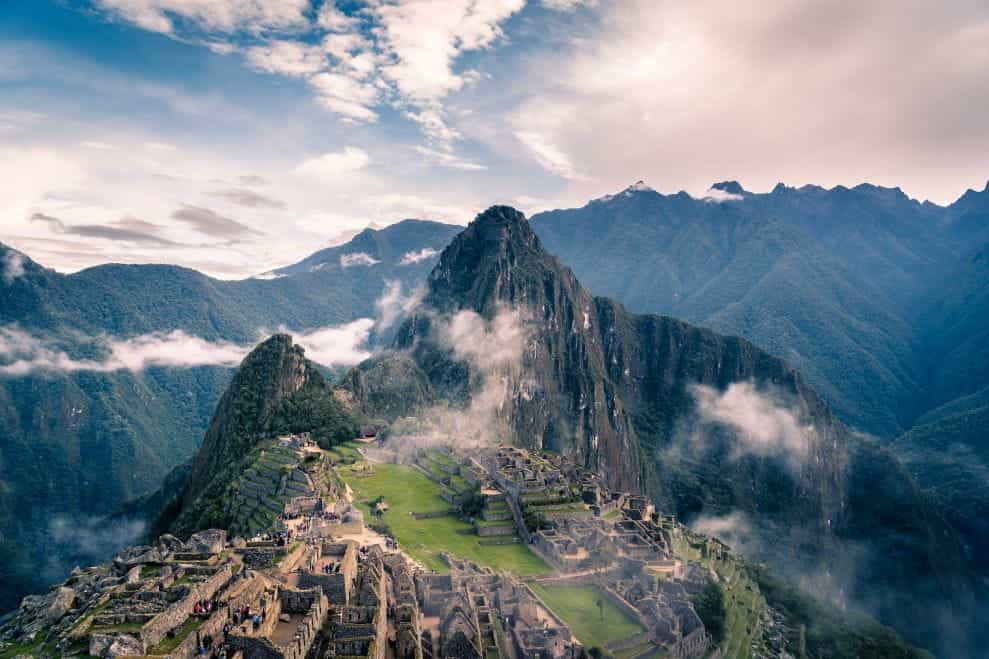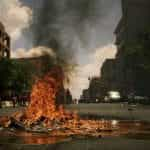Peru in State of Emergency
Amid violent protests and political upheaval, Peru’s government declared a state of emergency in December which will last into at least February. The unrest has resulted in many economic difficulties for the country, including a slump for its gaming industry. The complicated matter shows no sign of coming to a resolution soon, as the possibility of a new presidential election in 2023 is debated.

Popular tourist destination Machu Picchu has been closed indefinitely due to ongoing violent clashes between protesters and Peru’s security forces. Willian Justen de Vasconcellos/Unsplash
Details of Peru’s state of emergency
Peru has been experiencing protests since December, when former President Pedro Castillowas removed from his post and imprisoned. Support for Castillo combined with unrest in the country, where many citizens did not feel represented by the replacement government.
Those citizens rose up to lock down highways and severely impact movement within Peru. The action has affected thousands of people, including stranded tourists, but more importantly, nearly 50 have died as a result of the violent clashes which have taken place.
The state of emergency was declared in December in order to exert more control over the country and the movement of those within it. However, it has now been extended in Lima and parts of Cusco, Puno and Callao, and will last at least midway through February, if not longer.
What happens next depends on how quickly Peru’s new government can respond to protester’s demands and find compromise. Unfortunately, even if the government is willing to make concessions, the tensions in the country are deeply rooted and go back far longer than the issues Brazil has recently faced, for example.
Peru’s army has been accused of using excessive force in these clashes, resulting in injuries and deaths. The army has countered by saying it is defending itself against homemade weapons created by the protesters.
What started the protests in Peru?
Though these issues have simmered in Peru for many years due to inequality, class divisions and a poor economy, this exceptional period was sparked when former President Pedro Castillo was expelled. Castillo had attempted to dissolve Congress, essentially threatening the democratic political system, and was immediately put into detention.
Despite his issues, Castillo is seen as a symbol and a hero for many people across Peru. Coming from a rural background and with no experience in politics before his election in July 2021, he was a surprising leader for the country and seen as part of the “new left” in Latin America.
Castillo attempted to work through issues he had campaigned on including wealth redistribution, but faced much pushback in Congress from conservatives. He also struggled to keep the country secure in the face of high inflation.
Before he was officially removed from office, others had tried to impeach him twice, and he was accused of abetting corruption. Castillo responded by denying all allegations and calling the situation a witch-hunt. Several other leftwing politicians across Latin America have spoken out in support of Castillo. Mexico agreed to house his family while he awaits trial.
Castillo was replaced by current President Dina Boluarte. Boluarte had served as his Vice President and is the first woman to have been elected to the Peruvian presidency. Despite her former ties to the Marxist Free Peru movement, protesters have felt alienated by her actions as president.
Boluarte has been seen to have shifted to more conservative ideologies to gain support from conservative politicians and groups. Protesters have demanded her resignation and ask for a new election to appoint a different president as soon as possible. Boluarte has now put forth a bill asking for an election to take place this year, but if it is not accepted, voters might have to wait until 2024.
In the meantime, the damage done in Peru has been severe. Massacres have taken place in Ayacucho and Juliaca, with blame placed by human rights experts on the Peruvian army and National Police, while the government denies responsibility. This has increased the push for Boluarte to step down.
In the midst of this tragic turmoil, it is of little surprise that gambling is not a priority for many at the moment. Some land-based locations will be affected by the state of emergency order, but online gaming was recently passed into law — under Castillo — so citizens can still enjoy gaming from home. However, the industry is projected to suffer losses during this period, whereas many other countries in LATAM are seeing gains since the pandemic restrictions have lessened.



